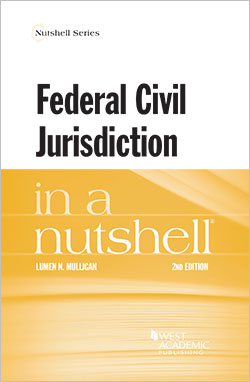What are Secondary Sources?
Stepping into the vast world of legal research can feel overwhelming at first. But fear not! Secondary sources are here to be your guide. These are resources—like legal encyclopedias, law review articles, and treatises—that illuminate the path to understanding the law. They offer explanations, interpretations, and analyses of primary legal authorities (think statutes, cases, and regulations). By effectively utilizing secondary sources, you can not only locate the relevant primary law but also gain a deeper understanding of its application and nuances. We discuss each type of secondary source below.
Types of Secondary Sources
Law Dictionaries
Don't get tripped up by legal jargon! Secondary sources like legal dictionaries (think the renowned Black's Law Dictionary) offer quick definitions and explanations of legal terms and concepts.

BLACK'S LAW DICTIONARY (12th ed. 2024) BALLENTINE'S LAW DICTIONARY (3d ed. 1969)
Available on Westlaw Available on Lexis
Legal Encyclopedias
Legal encyclopedias, like American Jurisprudence 2d (Am. Jur. 2d) or Corpus Juris Secundum (CJS), can be your gateway to legal knowledge. These multi-volume sets offer overviews of a wide variety of legal topics, which results in less in-depth treatment like that found in a treatise or restatement. Legal encyclopedias offer a solid foundation for understanding legal concepts and serve as a valuable springboard for diving deeper into specific legal issues.


AMERICAN JURISPRUDENCE 2D CORPUS JURIS SECUNDUM
Available on Lexis & Westlaw Available on Westlaw
Treatises
Delve deeper into specific legal areas with treatises. These are comprehensive, scholarly publications written by legal experts, offering in-depth analysis and commentary on specific legal topics. Famous examples include Corbin on Contracts, a cornerstone resource for contract law, and Nimmer on Copyright, the leading treatise on copyright law. Legal treatises not only provide detailed explanations but also discuss historical context, relevant cases, and potential future developments in the law, making them invaluable for researchers seeking a thorough understanding of a particular legal issue.


CORBIN ON CONTRACTS NIMMER ON COPYRIGHT
Available on Lexis Available on Lexis
Restatements
Restatements are a series of authoritative texts that aim to comprehensively restate (hence the name) the principles of law in various legal areas. Think of a restatement as a detailed and organized guide for a specific area of law. You may have seen examples of famous restatements in your course textbooks, such as the Restatement (Second) of Torts and the Restatement (Second) of Contracts.

Restatement (Second) of Torts Restatement (Second) of Contracts
Available on Lexis & Westlaw Available on Lexis & Westlaw
American Law Reports
American Law Reports (ALRs) are a series of in-depth annotations written by legal experts. Each annotation focuses on a narrow legal topic or question, providing a comprehensive overview of relevant case law across various jurisdictions (federal and state courts). ALRs not only summarize key cases but also analyze the legal reasoning behind them, highlighting potential arguments and counter-arguments.
Law Review Articles
Law review articles offer a window into the dynamic world of legal scholarship. Authored by legal academics, judges, practitioners, or even law students, these articles address complex legal topics with a critical lens. They analyze recent court decisions, propose new legal theories, and explore the evolving landscape of the law. Law review articles offer in-depth analysis, diverse perspectives, and a platform for new ideas. These articles can be highly persuasive and influential, sparking thought-provoking discussions and shaping the future development of the law.
Practitioner Resources
Practice manuals and other resources are indispensable tools for legal professionals. These secondary sources offer invaluable guidance and analysis on a wide range of legal topics. Attorneys will often use practice manuals to find practice-oriented information about a legal issue, citations to primary law and other relevant secondary sources, and even templates for forms and court documents. Below is an excerpt from a popular practice resource in Missouri: the Missouri Practice Series (MOPRAC).









)